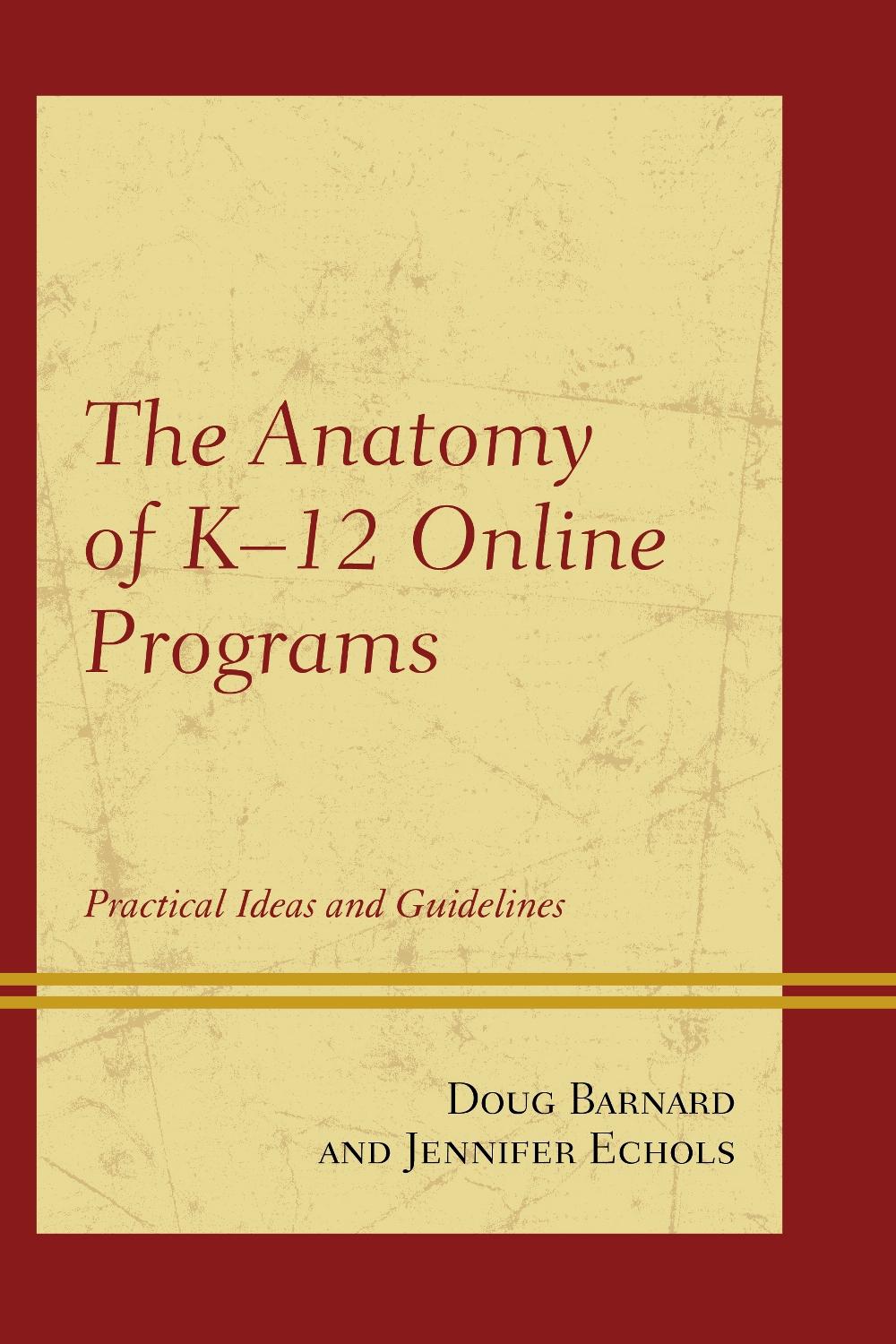
When you click on links to various merchants on this site and make a purchase, this can result in this site earning a commission. Affiliate programs and affiliations include, but are not limited to, the eBay Partner Network.
The Anatomy of K-12 Online Programs: Practical Ideas and Guidelines by Jennifer

- Item No : 135607761546
- Condition : Brand New
- Brand : No brand Info
- Seller : the_nile
- Current Bid : US $95.30
-
* Item Description
-
The Nile on eBay

The Anatomy of K-12 Online Programs
by Jennifer Echols, Doug Barnard
The growth of virtual online programs at the K-12 level is unparalleled in the history of education. This book discusses what constitutes a viable online program and how programs maintain rigorous courses, creditability, and high academic standards.
FORMAT
HardcoverLANGUAGE
EnglishCONDITION
Brand New
Publisher Description
The growth of virtual online programs at the K-12 level is unparalleled in the history of education. This book discusses what constitutes a viable online program and how programs maintain rigorous courses, creditability, and high academic standards. Barnard and Echols provide practical information about the vision, curriculum, course designs, and the impact of "for profit" online schools. This book offers practical advice and guidance to those concerned with developing and improving current programs.
Author Biography
Dr. Doug Barnard is recognized as being the founder of K-12 online programs in Arizona. The Arizona Republic newspaper has referred to him as the Dean of online programs in Arizona. Over thirty other Arizona school districts have signed agreements to use the K-12 online program developed by Dr. Barnard and his staff.Jennifer Echols is a program specialist for the Mesa Distance Learning Program, the largest district online program in the state of Arizona. Ms. Echols has experience with all facets of an online program, including the development of program structure and course content, coordination of services for partner districts, and development and delivery of professional development for program administrators and teaching staff.
Table of Contents
PrefaceAcknowledgmentsIntroductionChapter 1: The Current Online EnvironmentIncreasing enrollment in K-12 online programsCommon myths about online learningEssential program componentsChallenges facing online programsThe oversight of online programsThe politics of online learningChapter 2: Starting an Online ProgramVision, mission, and core beliefsIdentify the Defining AttributesHire the StaffAwareness of criticsSelection of technology/vendorsChapter 3: CurriculumOptions for curriculumStandards-based curriculumGrade-level appropriateChunked curriculum and frequent feedbackFlexibility and accessibilityDifferentiating instruction for diverse learnersChapter 4: The Potential Impact of the Common CoreThe core of the Common CoreHigh stakes testsThe Common Core drives changesAlignment of Common Core standards in online programsImplications for lesson design in online programsOptions for K-12 online programsThe bottom line – increased costIs the Common Core here to stay?Chapter 5: Academic IntegrityWhat is academic integrity?Academic integrity builds credibilityShifting societal view of cheatingThe politics of cheatingLeadership from the stateHow easy it is to cheat?Ensuring academic integrityConsequences for cheatingRemoving the incentive to cheatChapter 6: Evaluating Online Teachers and SpecialistsExpectations for online teachersFeedback is importantCan feedback change online teacher behavior?Evaluation of program specialistsChapter 7: Technology, Monitoring & FunctionsLMS optionsMonitoring expectationsOther functions of the LMSChapter 8: Future Trends & IssuesDevelopment and management of online coursesStatewide policiesPlanning for school closuresAppendix A
Review
Any district considering an online program would benefit from advice from the most progressive and innovative work of these co-authors. The book is not only timely but it is also practical with many examples of processes and guidelines for a quality online program. -- Kathleen Tolar, teacher specialist, Tempe, Arizona
Finally, an expertly crafted resource for any school district wanting to start an online program the right way. -- James Butler, director of community schools & distance learning, Marana School District, Marana, Arizona
A must read for those wanting to implement a highly comprehensive, online, academic program. Informative, effective, and results oriented! -- Carmen Riedel, guidance counselor
This is a great book to learn from as well as an excellent reference that you will use often in the future, making this book an excellent long-term investment. If you have or want to have an online program – you can't afford not to have a copy. -- Karen Appel, Mesa Community College, mathematics faculty, Mesa, Arizona
This is the only book on the market that clearly defines the reality of current online programs. The examples and guidelines provided within the text to improve future online programs are both relevant and invaluable. -- Renee Rosales, distance learning advisor, Flagstaff Public Schools, Flagstaff, ArizonaLong Description
The growth of virtual online programs at the K-12 level is unparalleled in the history of education. This book discusses what constitutes a viable online program and how programs maintain rigorous courses, creditability, and high academic standards. Barnard and Echols provide practical information about the vision, curriculum, course designs, and the impact of "for profit" online schools. This book offers practical advice and guidance to those concerned with developing and improving current programs.
Review Quote
Any district considering an online program would benefit from advice from the most progressive and innovative work of these co-authors. The book is not only timely but it is also practical with many examples of processes and guidelines for a quality online program.
Details
ISBN1475809816Publisher Rowman & LittlefieldISBN-10 1475809816ISBN-13 9781475809817Format HardcoverAuthor Doug BarnardSubtitle Practical Ideas and GuidelinesCountry of Publication United StatesDEWEY 371.358Illustrations black & white illustrationsPages 122Year 2014Short Title ANATOMY OF K-12 ONLINE PROGRAMLanguage EnglishMedia BookPublication Date 2014-11-12Imprint Rowman & LittlefieldPlace of Publication Lanham, MDUK Release Date 2014-11-12NZ Release Date 2014-11-12US Release Date 2014-11-12Alternative 9781475809824Audience Professional & VocationalAU Release Date 2014-11-14


-
- The Lost Super Foods
- $ 37.00
- The Self-Sufficient Backyard
- $ 37.00
- A Navy Seals BUG IN GUIDE
- $ 39.00
- Childrens Books Phonics Lot 60
- $ 34.99
















